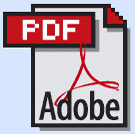Call for Papers: Sponsored by the Open University and the Institute of English Studies at the University of London.
Title: “Evidence of Reading, Reading the Evidence.”
Description:Studies centred on the history of reading have proliferated in the last twenty years. They have sprung from several different disciplines, encompassed different periods and geographical locations and chosen divergent methodologies, but their common quest has been to recover and understand the traces of a practice which is central to our understanding of human history, yet notoriously elusive.
One such approach is ‘The Reading Experience Database 1450-1945’ (RED), a project run by the Open University and the University of London . While RED is already proving its worth as a digital resource, its methodological parameters are necessarily limited and its vision therefore partial. What is needed in order for the study of the history of reading to progress beyond the boundaries of specific institutions, disciplines, methodologies, geographical locations and time periods is a forum in which as many diverse approaches as possible are brought into energetic debate.
This major 3-day conference, the first of its type, seeks to provide such a forum. We invite 20-minute papers from international students and scholars of any discipline – both within and outside the Humanities — who are interested in the history and practice of reading in any period or geographical location. Topics may include, but are by no means limited to:
* Theories of reading
* Issues of literacy
* National and transnational histories
* Reading and readers in fiction
* Reading communities
* Quantitative versus qualitative methodologies
* Genre reading
* Digital resources and their development
* Visual representations of reading
* Reading across disciplines/languages
* Using historical data in contemporary research fields
* The sociology, psychology and neurology of reading experiences
* Evidence of reading from private audio recordings and blogs
* Finding, compiling, interpreting and preserving the evidence of reading
Type of submission wanted: Paper titles, abstracts of no more than 300 words and short biographies sent to all three organizers.
Deadline: Jan 31, 2008
Contact: Dr Shaf Towheed (S.S.Towheed@open.ac.uk); Dr Rosalind Crone (r.h.crone@open.ac.uk); Dr Katie Halsey (Katie.Halsey@sas.ac.uk).

